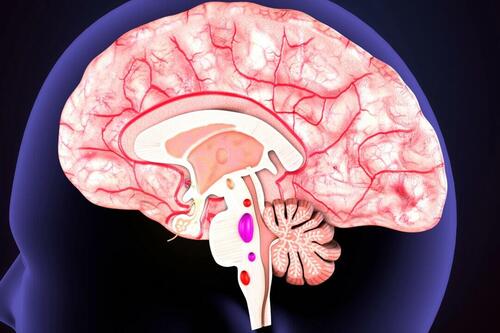HUGE CAVEAT TO HABITUAL PILL TAKERS!
By Marina Zhang
The Epoch Times
It is well-known that dementia is often a result of aging. However, sometimes it can be caused by medications.

Drug-induced dementia, the late neurologist and neurosurgeon K.K. Jain wrote, is a type of reversible dementia different from common neurodegenerative disorders.
Several drugs increase the risks of dementia, the most prominent being anticholinergic drugs, anti-epileptics, oncology drugs, and sedative-hypnotic drugs. These are all common prescriptions for older people.
In recent years, antidepressants have also been linked with dementia risks.
The Link Between Dementia and Common Drugs
Psychiatrist Dr. Peter Breggin, who has published several books on psychopharmacology, told The Epoch Times that most drugs on the market have some degree of neurotoxicity, which can lead to cognitive and neurological side effects.
Not everyone will be affected by a drug’s neurotoxic effects, though older people and those with brain deficits are more vulnerable.
With illnesses that surface in old age and the pills prescribed to treat each symptom, older people also tend to be the most likely cohort to be prescribed drugs that damage their cognition.
For example, many drugs prescribed to treat Parkinson’s disease are linked with dementia risks since they block acetylcholine in the brain as a way of preventing tremors and sudden movements in patients. Acetylcholine is a neurotransmitter that also facilitates cognitive function.
Proton pump inhibitors, often prescribed to treat heartburn, have also been shown in studies to increase people’s risks of dementia by 44 percent.
Within the literature, the most well-known class of drugs that can induce dementia are anticholinergic drugs.
Anticholinergics block the release of acetylcholine. As early as 1977, experiments using the anticholinergic drug scopolamine showed that 40 minutes after drug administration, young medical volunteers in their 20s manifested dementia-like symptoms and had a harder time recalling things they had just learned.
Anticholinergic drugs block autonomic muscle movements and various bodily functions and are often prescribed for cramping and spasms in various organs. They also function as a sedative.
Neuroscientist Dayan Goodenowe, who has a doctorate in medicine and psychiatry, explained on Epoch TV’s “Vital Signs” program that the acetylcholine system is the same system that controls cognition and mobility, two major functions impaired in dementia.
When neurons become unable to release acetylcholine, either due to age or drug effects, their contact with other neurons is reduced. The neurons and brain then start to shrink.
This has also been observed in research published by Indiana University professor Shannon Risacher, who has a doctorate in medical neuroscience. She found that people taking anticholinergic drugs have greater shrinkage of overall brain volume.
“Use of medication with significant anticholinergic activity should likely be discouraged in older adults if alternative therapies are available,” Ms. Risacher and her co-authors wrote in a JAMA Neurology study.
Examples of anticholinergic drugs include diphenhydramine, the active compound in Benadryl, Tylenol PM, and Advil PM. They also include common medications for Parkinson’s disease, such as benztropine, trihexyphenidyl, etc.
Acetylcholine naturally decreases with aging, so Mr. Goodenowe and his team have been attempting to find therapeutics that increase the brain’s acetylcholine levels without compromising overall brain function.
Antidepressants, Other Drugs, and Polypharmacy
Antidepressants, anti-epileptics, hypnotic sedatives, and opioids have also been shown to increase a person’s risk of dementia. These, along with anti-parkinsonian drugs, are all psychoactive.
The primary function of antidepressants is to block neurotransmitters such as serotonin instead of acetylcholine. However, these drugs still have potent anticholinergic properties and, when taken with other anticholinergics, could add to the overall load, potentially inducing side effects of delirium and dementia.
Older people with dementia are often prescribed antidepressants, anti-epileptics, and sedative drugs to help manage depression and aggression that can arise.
However, Dr. Breggin highlighted that an irony is that the drugs prescribed to patients to improve these conditions may very well exacerbate their illness.
Drugs not prescribed for psychoactive treatment have also been linked to dementia.
Type 1 histamine (H1) blockers, prescribed to control allergies, have been shown to increase the risk of dementia in some people. Compared to type 2 histamine (H2) blockers, some H1 blockers can cross the blood-brain barrier and prevent acetylcholine release.
Furthermore, prescribing multiple drugs to a patient—a practice known as polypharmacy—may cause cumulative adverse effects.
“Whether a patient will develop cognitive impairment or not when prescribed a particular drug with anticholinergic properties is unpredictable and depends on factors such as co-medications which may have anticholinergic effects,” Drs. Alan Moore and Shaun O’Keefe, professors of geriatric medicine, wrote in their paper discussing drug-induced neurological effects.
“Studies have suggested that it is often the total burden of anticholinergic drugs that determines development of delirium rather than any single agent,” they added.
The Complex Brain
While many psychoactive drugs on the market attempt to “fix” the brain, how the organ is supposed to function at baseline largely remains a mystery.
Psychoactive drugs are often prescribed to correct brain chemical imbalances, but researchers do not know what the brain’s normal state truly looks like, as Yale University professor Avram Holmes illustrated in his 2018 comment about the brain having “no fixed normal” state.
“There are hundreds of neurotransmitters we don’t know about and maybe thousands of transmitters,” Dr. Breggin said. “We just have a few that are deeply affected by psych drugs, and [those are the ones we] could study because the drug companies in the pharmaceutical industry pay for that.”
Dr. Breggin argues that psychoactive drugs, which aim to address biochemical imbalances within the brain, actually cause the brain to become further maladapted.
He gave the example of SSRIs, which increase serotonin levels by blocking serotonin removal.
He has observed that the brain experiences two changes while on the drug: It reduces serotonin production and reduces the power of the serotonin removal system.
___
https://www.theepochtimes.com/health/several-common-drugs-are-linked-to-dementia-5574311?utm


No comments:
Post a Comment